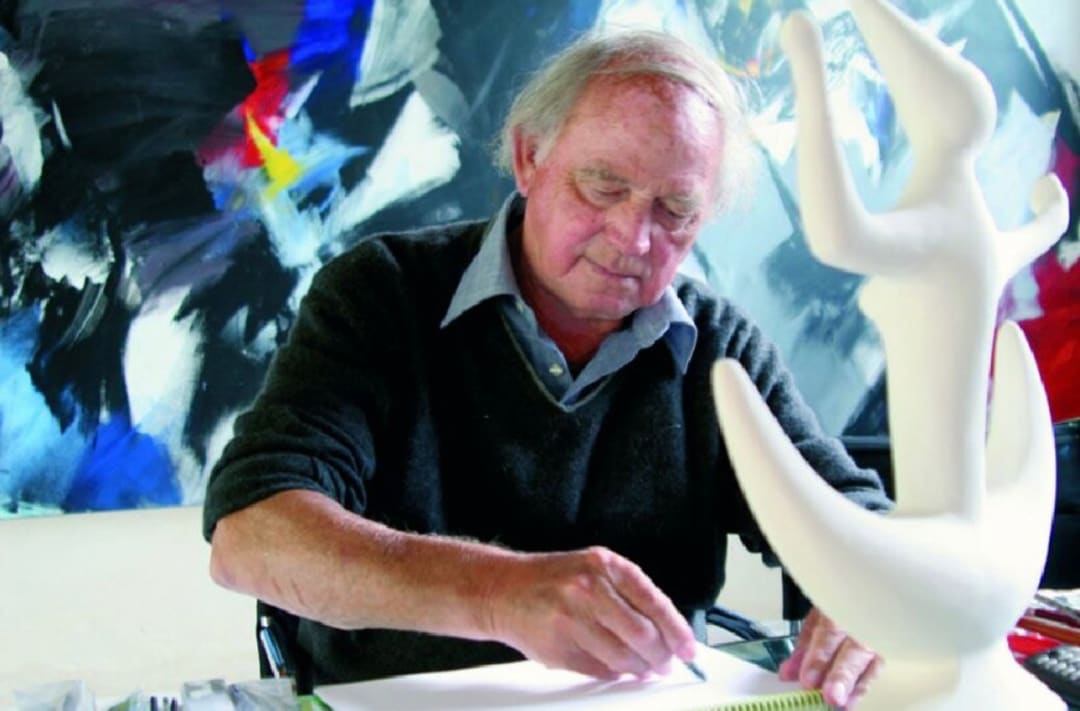Miotte was deeply influenced by the Abstract Expressionism movement in the United States, and his work often reflects the intense energy and freedom of the action painters like Jackson Pollock. His canvases are marked by bold, sweeping lines, spontaneous marks, and vibrant colors, emphasizing movement and the physicality of the painting process. Miotte also explored a range of media, including printmaking and ceramics, but he is primarily known for his large-scale paintings.
In the 1950s and 1960s, Miotte became associated with the Cercle et Carré group and the Abstraction-Création collective, contributing to the international expansion of abstract art. His works were exhibited at major galleries and museums worldwide, including the Musée d'Art Moderne in Paris and the Guggenheim in New York. Miotte’s commitment to exploring the boundaries of abstraction, and his focus on the raw energy of the artistic act, have made him an influential figure in 20th-century European art. His work continues to be celebrated for its intensity and its connection to the expressive potential of abstract art.
